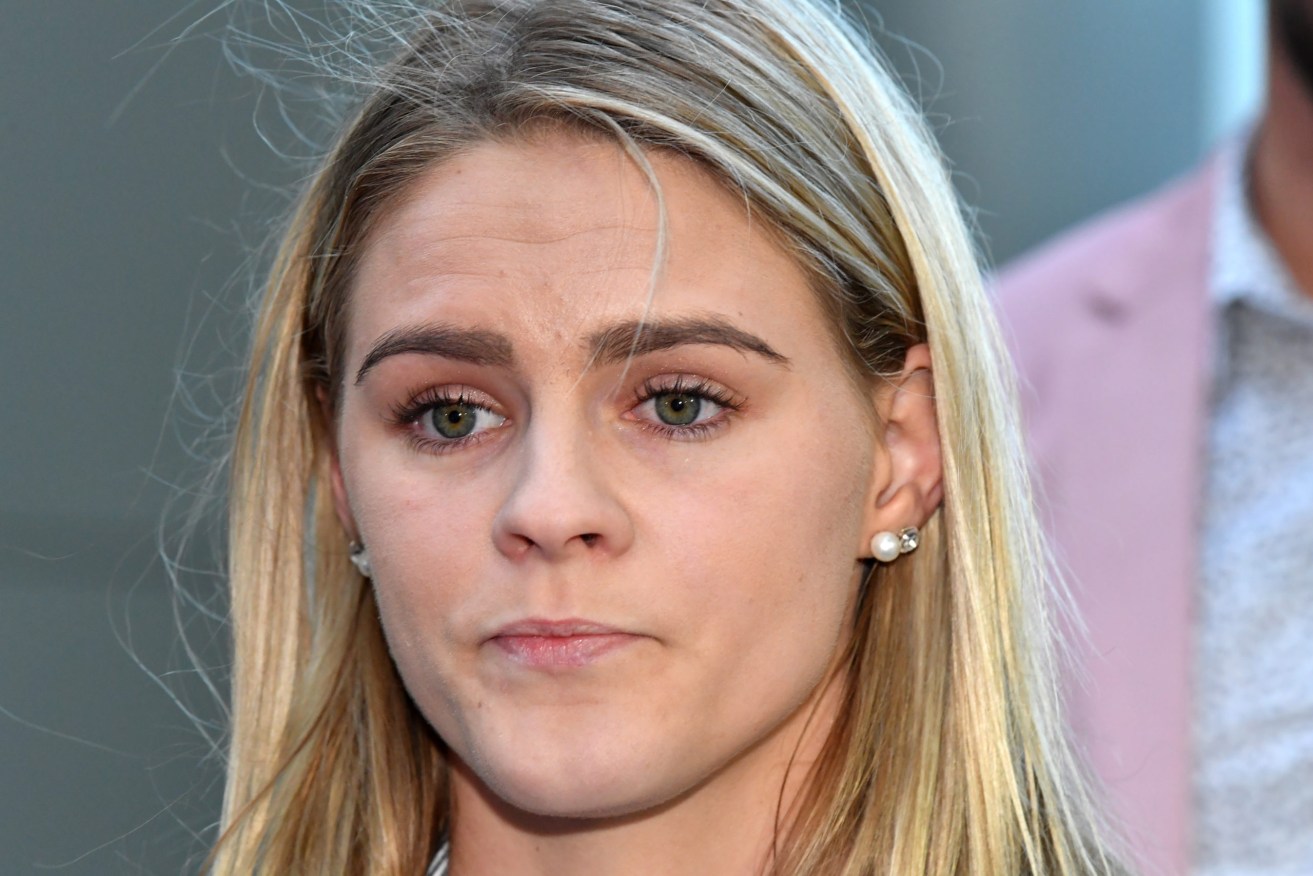Swimmer Shayna makes plea to ‘keep fighting for what’s right’
Australian swimmer Shayna Jack has made an emotional plea for help as she prepares to once again fight a doping violation that has stalled her career.

Australian swimmer Shayna Jack will have her suspension halved. (Photo: AAP Image/Darren England)
Two of the world’s most powerful anti-doping bodies lodged appeals in December against the two-year ban handed down to Jack.
The 22-year-old tested positive to Ligandrol, which forced her to withdraw from Australia’s squad for the world swimming championships in 2019.
She said she did not know how the banned substance entered her body, but the Court of Arbitration for Sport (CAS) heard expert opinions that the amount was “pharmacologically irrelevant”, or not performance-enhancing.
Jack now has reached out for support as she prepares to fight the Sport Integrity Australia (SIA) and the World Ant-Doping Agency (WADA) appeal.
In the strict-liability world of anti-doping, a positive test means a four-year ban.
“During my first court case I went up against Sports Integrity Australia and my family and I spent $130,000 total,” Jack said in a video released today.
“However, I did prove I did not intentionally ingest that substance, which is why the two-year ban was given to me and I copped it on the chin and looked forward to returning to my sport in May 2021.
“But unfortunately they decided to take me through all this all again. To take me through the heartbreak.”
Jack tested positive to the banned drug Ligandrol before the 2019 world championships and the SIA provisionally suspended the Commonwealth Games gold medallist for four years.
In December, CAS reduced that suspension to two years.
Ligandrol is one of many drugs in a category known as SARMs (Selective Androgen Receptor Modulators) that produce anabolic effects such as muscle mass and strength without the usual side effects of steroids.
During the CAS hearing, Jack and her representatives expressed three options for how the drug could have entered her system: contaminated supplements at a manufacturing level, contaminated supplements at home or she may have come in contact with the drug at a pool or gym.
“It breaks my heart every day I can’t be in the pool with my squad mates,” Jack said in the video as she held back tears.
“It breaks my heart every day that I’m still up against these people in which I feel are constantly kicking me down.
“I’d like to ask for your help in order to keep fighting. I don’t have the funds and neither does my family.
“If I don’t fight I can potentially get the maximum ban because I can’t stand up for myself in my next appeal.”
Jack, who was part of the world-record-breaking Commonwealth Games relay team, could have her career cut short if the SIA and WADA appeal is successful.
“Let’s keep fighting for what’s right in sport,” Jack said.
Former Swimming Australia CEO Leigh Russell, who was CEO at the time of Jack’s positive result, said the appeals process was “too complex” to fight without legal representation.
“It’s a pretty stressful situation for any athlete to find themselves, stressful for their family,” Russell said.
“There’s no financial assistance that athletes can get. Even when you are in the broader legal system and you were charged with a crime, you can access legal aid.
“Athletes have no recourse to access any funds anywhere.”
CAS reduced that suspension to two years, SIA CEO David Sharpe said: “Sport Integrity Australia will always act to ensure a level playing field for athletes. In order to protect athletes and sporting competitions, we must have clarity and consistency in the application of the World Anti-Doping Code”.
Jack’s case was originally heard by a single arbitrator, but the appeal will be heard by a panel of three.
Appeals are heard “de novo”, or “afresh”, meaning the whole process starts again. Those who are experienced in the operation of the court said the appeal would take between six and nine months.












